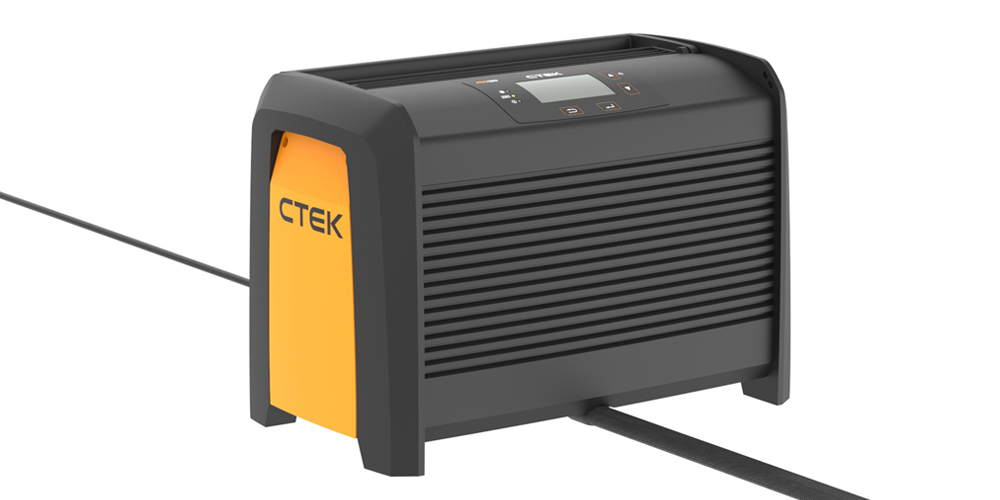Battery support – a necessity for the workshop
Battery support is an essential part of modern workshop practices, and this applies to all workshop services, even in minor cases. As our vehicles are technically advancing, the need for battery support increases. Åsa Johansson, Scandinavian Training Manager at CTEK, is frequently educating workshops on the importance of battery support. For the workshop, battery support in connection with service is both a technical safety, a complementary service to the customer and also a security for the company brand itself.
When you open your car door, notice everything that turns on, all of this energy comes directly from the battery. A modern vehicle has more than 200 Electronic Control Units (ECU), they are controlling many of the vehicle’s functions and a lot of them are turned on at the same time you unlock your vehicle.
Åsa Johansson explains that the knowledge about battery support increases but at the same time, many workshops are still unaware of its importance. She said, “I recently had a training session for a large nationwide vehicle workshop chain. At the beginning of the course, half of those who participated understood the importance of battery support, the other did not. It's a bit like flossing. Everyone knows it's a good thing to do, but a few uses it.”
CTEK’s survey shows that out of the vehicles on the road, a lot of them are having a faulty battery, even if the drivers might be unaware of it. It is important to check the battery’s state of health before you do any service, you might find out that the owner needs to replace the battery.
Åsa Johansson said, “It is a safety for the workshop. If the battery is faulty, tell the customer and give them the opportunity to replace it with a new one. If the customer says no, then the customer can not blame you when their vehicle does not start a few days later”.
The function of the battery support is to give as high current as needed at a preferable voltage, and it is recommended to have the battery support plugged in during the whole service session.
Here, the duty to provide information rests heavily with the workshop. The businesses that have heavy traffic in their vehicle fleet are rarely product specialists in battery care and batteries. Because of that, it is useful if the workshop can give the tips and advice that will extend the life of the system.
“It is also interesting to note that a lot of manufacturers have a demand for at least 120 Ampere when a vehicle is undergoing service, and a lot of the new models have a demand for at least 100 Ampere”, says Åsa Johansson. “As a result we are seeing a big demand for our PRO120 product – a fully automatic 120A battery support unit, with incremental voltage power supply, for precise control over the most demanding fault finding, service and repair procedures. It can protect against battery failure during even the most demanding procedures.”



















